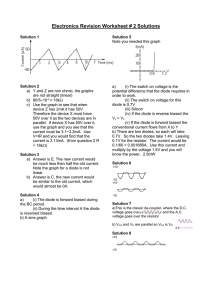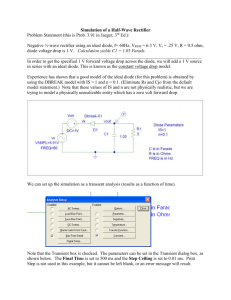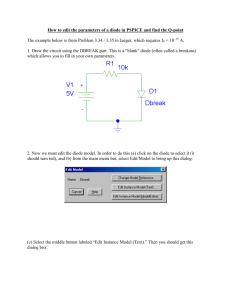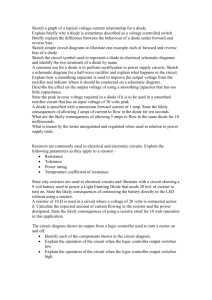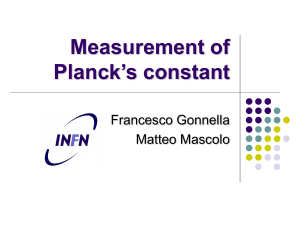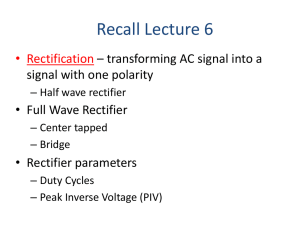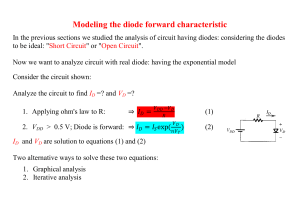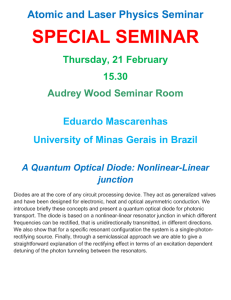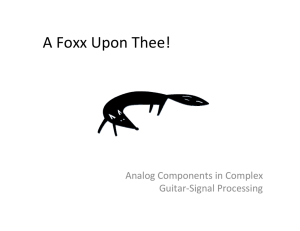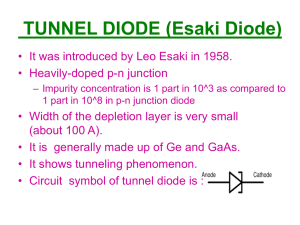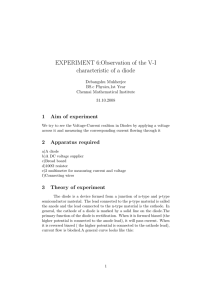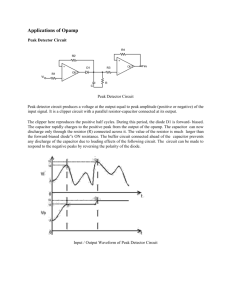The Diode - Iona Physics
advertisement
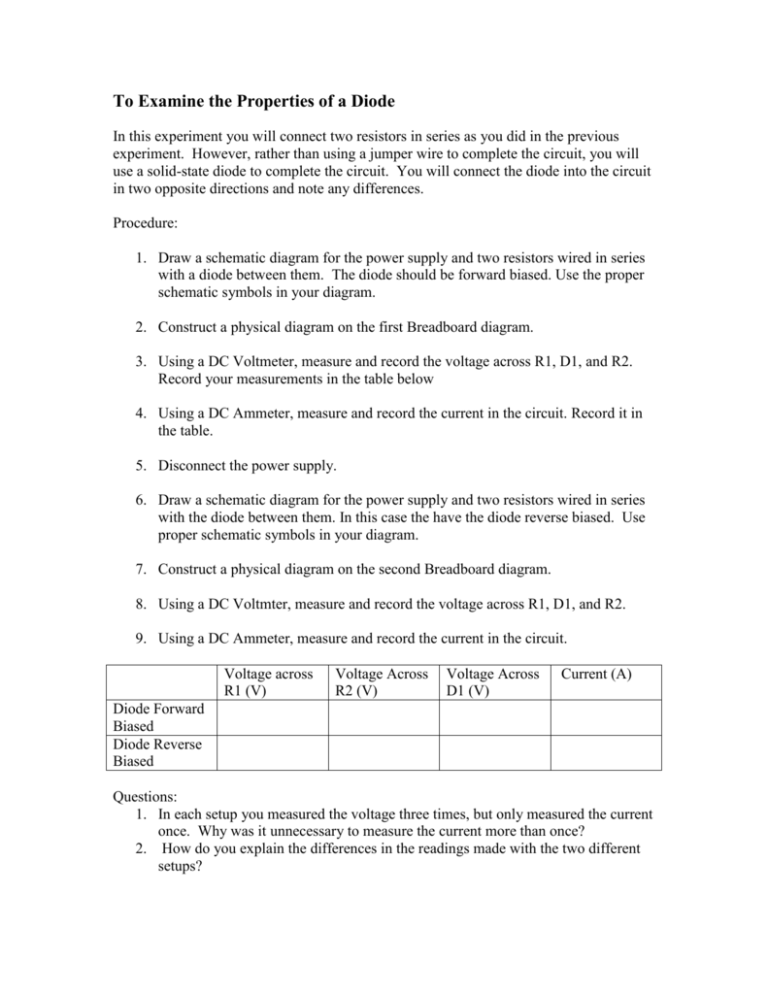
To Examine the Properties of a Diode In this experiment you will connect two resistors in series as you did in the previous experiment. However, rather than using a jumper wire to complete the circuit, you will use a solid-state diode to complete the circuit. You will connect the diode into the circuit in two opposite directions and note any differences. Procedure: 1. Draw a schematic diagram for the power supply and two resistors wired in series with a diode between them. The diode should be forward biased. Use the proper schematic symbols in your diagram. 2. Construct a physical diagram on the first Breadboard diagram. 3. Using a DC Voltmeter, measure and record the voltage across R1, D1, and R2. Record your measurements in the table below 4. Using a DC Ammeter, measure and record the current in the circuit. Record it in the table. 5. Disconnect the power supply. 6. Draw a schematic diagram for the power supply and two resistors wired in series with the diode between them. In this case the have the diode reverse biased. Use proper schematic symbols in your diagram. 7. Construct a physical diagram on the second Breadboard diagram. 8. Using a DC Voltmter, measure and record the voltage across R1, D1, and R2. 9. Using a DC Ammeter, measure and record the current in the circuit. Voltage across R1 (V) Voltage Across R2 (V) Voltage Across D1 (V) Current (A) Diode Forward Biased Diode Reverse Biased Questions: 1. In each setup you measured the voltage three times, but only measured the current once. Why was it unnecessary to measure the current more than once? 2. How do you explain the differences in the readings made with the two different setups?
